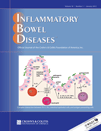Consumption of probiotics increases the effect of regulatory T cells in transfer colitis
Abstract
Background:
Probiotics may alter immune regulation. Recently, we showed that the probiotic bacteria Lactobacillus acidophilus NCFM™ influenced the activity of regulatory T cells (Tregs) in vitro. The aim of the present work was to demonstrate if L. acidophilus NCFM™ also affects the function of Tregs in vivo.
Methods:
Development of colitis after transfer of CD4+CD25− T cells and protection from colitis by Tregs was studied in immunodeficient SCID mice which were simultaneously tube-fed with L. acidophilus NCFM™ or L. salivarius Ls-33 for 5 weeks.
Results:
Probiotic-fed SCID mice transplanted with low numbers of Tregs in addition to the disease-inducing T cells were completely protected from colitis. This was in contrast to the control group, which showed intermediate levels of inflammation. In addition, feeding with probiotics lowered serum levels of inflammatory cytokines in both colitic mice and in mice protected from colitis by Tregs. Gene expression patterns of rectum samples of protected mice that receive either one of the probiotics showed a closer resemblance to naïve SCID mice than did patterns of the control group. The mechanism of action of the probiotics appears to be an indirect effect by inducing a Treg-favorable environment rather than a direct effect on the Tregs.
Conclusions:
L. acidophilus NCFM™ and L. salivarius Ls-33 feeding of SCID mice increases the in vivo effect of Tregs, resulting in a gene expression pattern in the rectum resembling that of the naïve SCID mouse. (Inflamm Bowel Dis 2011;)




